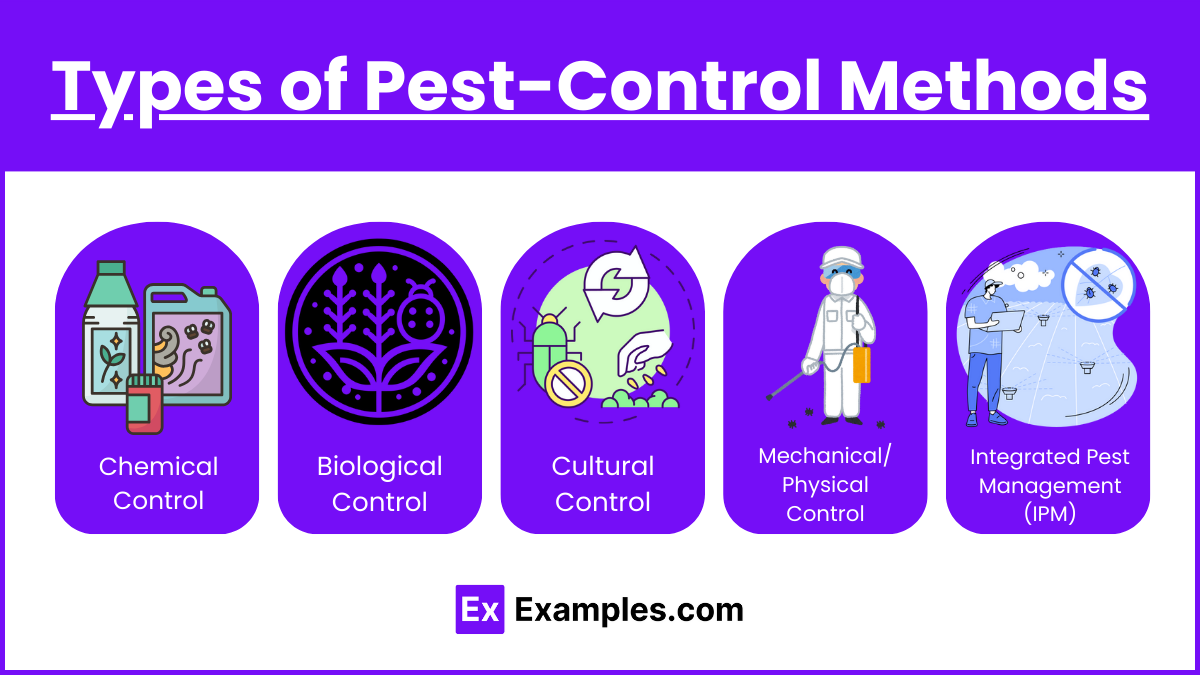8 Easy Facts About Pest Control Explained
8 Easy Facts About Pest Control Explained
Blog Article
The 9-Second Trick For Pest Control
Table of ContentsPest Control Fundamentals ExplainedPest Control Things To Know Before You Get This4 Easy Facts About Pest Control DescribedGet This Report on Pest ControlGetting My Pest Control To Work
Limitations of Chemical Administration Have the ability to examine bug troubles, figure out if management is necessary, and make appropriate recommendations utilizing IPM strategies. Be acquainted with various techniques of parasite management - their benefits and restrictions. Understand the value of useful pests. It is not possibleor also desirableto rid yards of all parasites.This phase discusses (IPM), a strategy that utilizes knowledge concerning pests and their, practices, nonchemical approaches, and pesticides to manage parasite problems. Extra details regarding IPM for specific plants is consisted of in phases that focus on those plants. Nonchemical insect control procedures are emphasized in phase 17, "Organic Gardening." Handling birds and animals is covered in phase 20, "Wild animals." Handling in the yard and yard is covered in chapter 6, "Weeds." Bugs in a yard or landscape may include bugs and termites, weeds,, mammals, and birds.
Insects and weeds, however, play a function in the. After planting a garden or establishing a yard, the natural process of plant succession begins to restore and nonnative plants.
What we call "insects" are part of an all-natural system at job. Just humans take into consideration specific types insects when they occur where they are not wanted.
See This Report on Pest Control
Pests prone to a pesticide were rapidly killed, leaving immune ones to breed and multiply. It became clear that chemicals alone would certainly not resolve all parasite troubles.
An IPM plan enables some level of parasites in the atmosphere. Insects are a lot less most likely to make it through a program that makes use of many various methods of decreasing their populations. Integrated bug monitoring was very first suggested by entomologists because bugs were the very first group of bugs to confirm hard to take care of with chemicals alone.
A limit is the point at which action ought to be taken. IPM has actually expanded past bugs to monitoring of all pest populaces: weeds, disease organisms, and mammals.
Pest Control Fundamentals Explained
Monitoring as opposed to elimination of pests is the goal. An IPM plan starts with a careful assessment of each insect infestation. Only after that can one determine concerning the proper tactics required to reduce bug tasks. The life process of the pest, feasible damage, natural enemies, and effects of weather, amongst other elements, are taken into consideration prior to a control strategy is applied - Pest Control.
Clover growing in a yard might be watched as an undesirable weed, yet as a bean it is synthesizing nitrogen for the dirt and the flowers are offering nectar to honey bees and various other. Resistance for some weeds might become part of an IPM strategy. might be consuming the fallen leaves of a plant, however when they are recognized as the larvae of Eastern tiger swallowtail butterflies, their damages may be endured so we can appreciate the attractive butterfly.

The second most crucial tool in insect management is very early treatment. Responding to Discover More issues quickly, before they have time to increase, calls for a less see here now dramatic treatment.
The Best Guide To Pest Control
Several safe, sensible, nonchemical approaches of plant security and bug management may decrease or get rid of the requirement to spray. Various other techniques are most helpful when made use of with pesticides. To carry out administration methods properly and to minimize losses, gardeners ought to understand the types of insects that assault plants and recognize pest biology.

Conducting a dirt test and using only the advised quantity of plant food and lime makes the most of the benefit to the plant while decreasing issues related to too much use fertilizer - Pest Control. Covering the soil with numerous inches of mulch safeguards the plant in several methods: decreasing dirt water loss to dissipation, decreasing weed competition, supplying nutrients, and developing a suitable setting for earthworms and microorganisms that keep the soil loosened for origins and damage down organic product to launch nutrients
If mulch touches the trunk, it can create a method for voles, germs, and fungis to assault the plant. Do not make use of manure or garden compost that has actually not extensively decomposed as a top clothing more tips here since it can urge undesirable insects. Study recommends that tilling the soil is detrimental to soil structure.
A Biased View of Pest Control
If tilling is considered necessary, think about doing it in the autumn when the life cycles of numerous parasites brings them near the surface area. At the surface, bugs become revealed to the weather condition as well as birds and other natural opponents.
Report this page